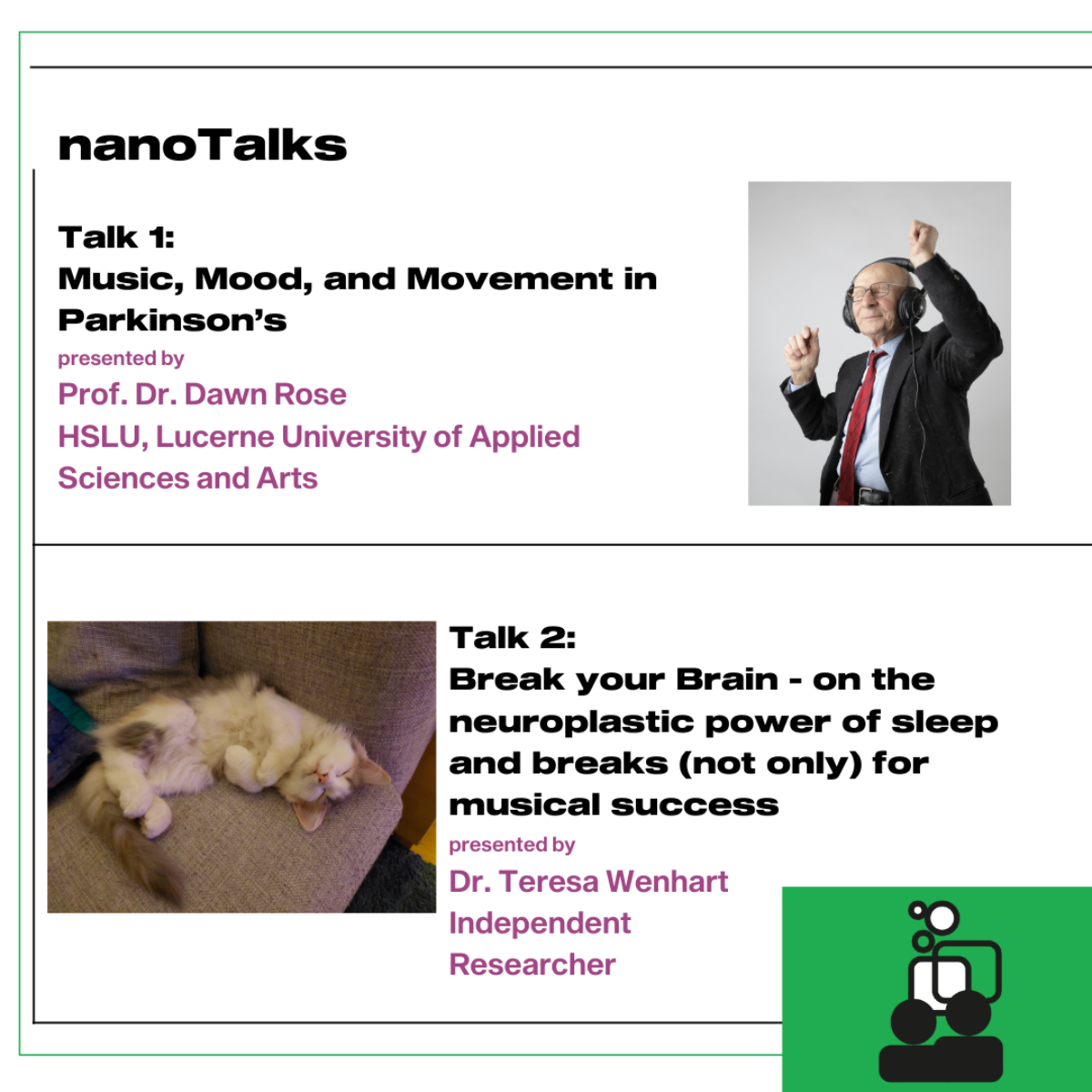
nanoTalks: Music, Movement and the Mind
How can music be used to help Parkinson’s patients? And why is it important to give your brain a break sometimes (not only for musicians)? Discover how two researchers bring together science and music to gain a deeper understanding of our mind. By looking at music from a scientific perspective, we can gain insight into the connections in our brain between music processing, the planning of motion, and the role sleep plays in learning movement.
25.01.2024
University of Zürich - Irchel Campus, Room: Y16-G-05
max. 60, no registration needed

max. 60, no registration needed
Talk 1: Music, Mood, and Movement in Parkinson’s
Presented by Prof. Dr. Dawn Rose, Senior Researcher and Music Psychologist at HSLU
Music is known to influence our emotional states and musical cueing can help synchronization between what we see and how we move, especially for movement disorders. Songlines for Parkinson’s is a new music and movement based course co-designed for and with Parkinson’s patients, alongside practitioners and medical professionals. The aim is to use music-based activities (listening, playing, drumming, marching, and dancing) to improve quality of life by ameliorating symptoms via a non-drug-based approach. Here the talk explains the transdisciplinary and inclusive processes involved in participatory medicine and showcase the newly developed intervention.
Talk 2: Break your Brain - on the neuroplastic power of sleep and breaks (not only) for musical success.
Presented by Dr. Teresa Wenhart, former Ph.D. researcher at the Institute for Music Physiology & Musicians Medicine, University of Music, Hannover
Can we make faster and better (musical) learning progress through sleep? That sounds too good to be true. In our performance-driven society, it is almost frowned upon to have no appointments or goals on the to-do list or to be 'unproductive.' However, sleep is indeed crucial for learning in general and particularly for movement. This talk illustrates how different types of breaks from micro-breaks to sleep enhance cognitive, motor and creative functions of the brain. During this talk, you will receive new insights into questions like: Why is taking a break so important? What happens in the brain during mind-wandering, and how can it foster creativity?
Image Sources:
1: https://www.pexels.com/de-de/foto/mann-in-der-schwarzen-jacke-die-schwarze-kopfhorer-tragt-3831645/
2: Private Photo of Teresa Wenhart